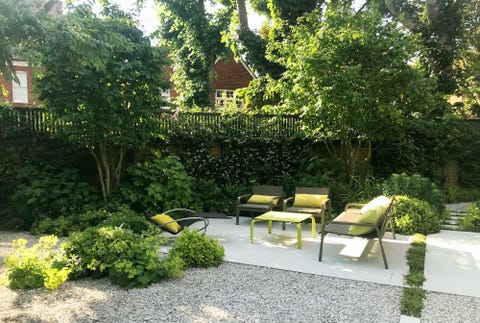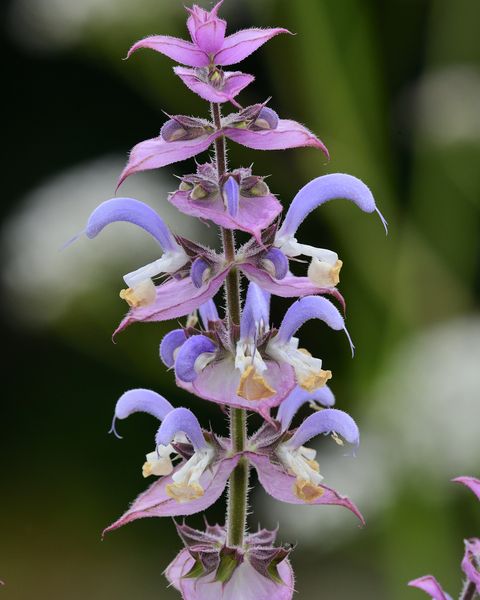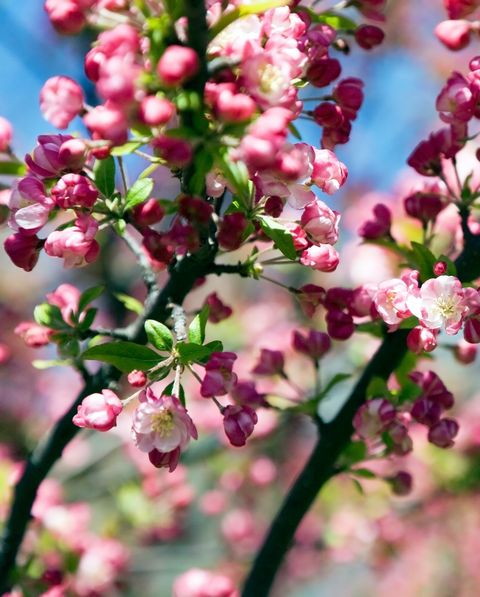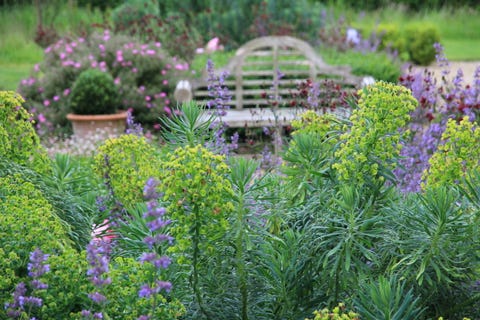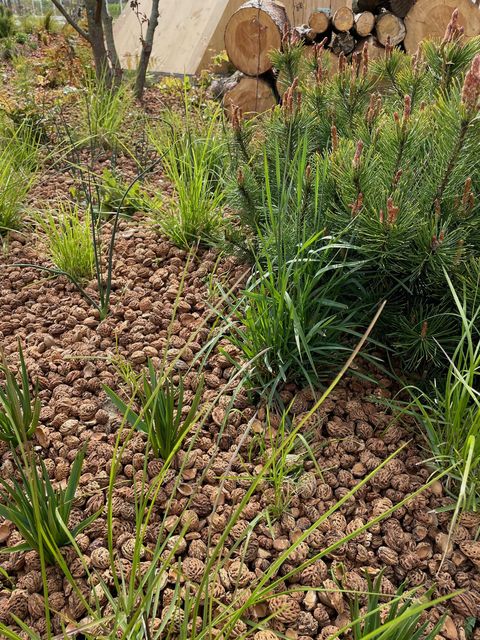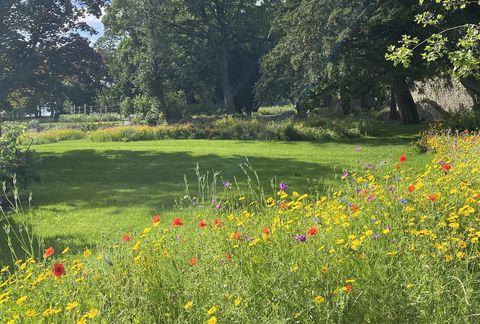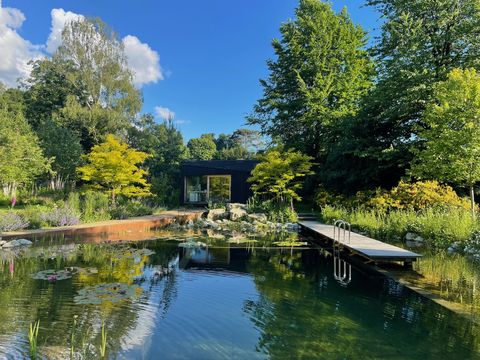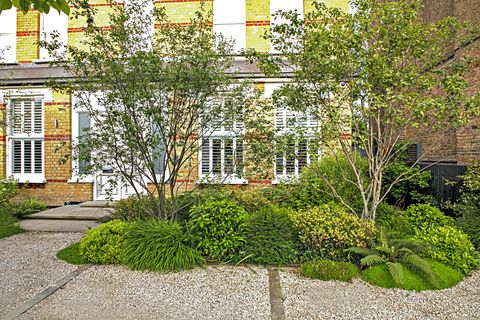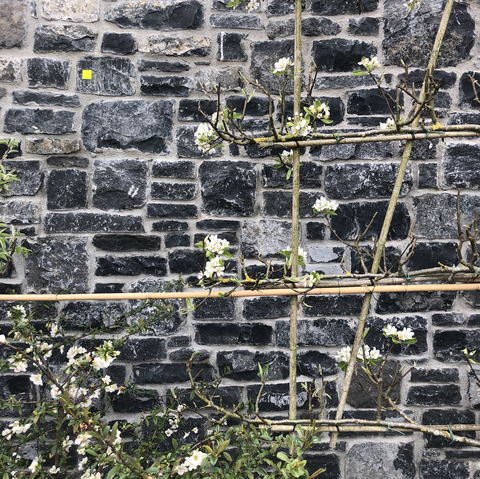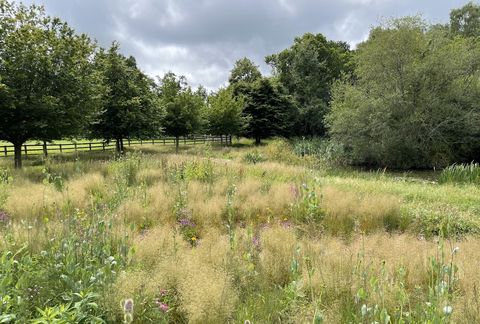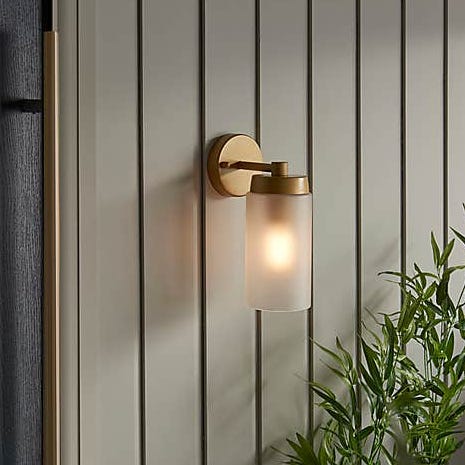Gravel gardens, drought-tolerant plants, and the return of the quintessential cottage garden are among the biggest garden design trends for 2023, predict the Society of Garden Designers.
While the interest in grow your own remains, with greenhouses and kitchen gardens surging in popularity, the emerging themes for 2023 are centred around thoughtful, clever design, and what the experts call ‘environmentally healthy gardens‘.
Andrew Duff MSGD, Co-Chair of the SGD, sums it up: ‘2023 welcomes the need to immerse ourselves in the great outdoors, whether it is an open window across balcony planting, our own gardens, park, or the joyous countryside, the need to be outside will be paramount. Surrounded by artificiality at every level we seek real grass to feel beneath our feet, misshapen fruit to pick from a tree and the memory inducing power of scent. Our gardens will have to work harder than ever to meet these primeval needs.’
The Society of Garden Designers – the only professional association for garden designers in the UK – has been championing excellence in garden design since 1981. Take a look at 2023’s biggest garden design trends from the experts:
Sustainable and eco-friendly gardens are nothing new, but 2023 will start to see the creation of gardens that are ‘environmentally friendly to the core and not just as a style trend’, says garden designer Tomoko Kawauchi MSGD. The next phase of the movement, she says, is creating ‘environmentally healthy gardens‘.
This means less emphasis on the naturalist ‘rewilded’ approach (as seen at last year’s RHS Chelsea Flower Show) and a return to a more structured design style that relies on the ‘interplay between man-managed forms and nature’, believes Tommaso del Buono MSGD.
Tomoko says it’s ‘not really viable’ to design a small London courtyard as a wildflower meadow, just as a naturalistic style of planting will not always work for town gardens: ‘I’m interested in creating an environmentally healthy garden without affecting my design ethos, which is contemporary and functional.’
As demonstrated in 2022, hot summers, unpredictable rainfall patterns and lack of water are becoming more familiar, so with that comes a trend towards tougher, more resilient plant palettes.
For Matthew Childs MSGD, plants that provide year-round colour and interest will still be central to designs, but resilient plants, such as long-flowering Salvias that are great for pollinating insects and wildlife, will be a focus.
Elsewhere, Marian Boswall MSGD hopes to see more trees, especially in city gardens, to help clean the air and reduce the urban heat island effect. She recommends the drought-tolerant crab apple tree: ‘Its blossom feeds insects in the spring, and in the depths of winter, when the ground is covered in snow and there is little to eat, its tiny apples provide nourishment for birds.’
Andrew says this year we’ll see a ‘much-welcomed return to the original cottage garden, remodelled for 2023, where function and aesthetics work as one and where sustainability isn’t a choice’. He refers to this idea of ‘a working garden’ where seasonality and change is embraced, rather than masked.
There’ll be an increased focus on mulches in 2023, says Matthew: ‘It may not sound very exciting but we’re going to be thinking much more about how we dress the surface of planting areas to help keep moisture in and competing weeds out so that our planting schemes are more resilient to the changing climate.’
In his own projects Matthew will be using recycled building materials such as crushed concrete, as well as fruit pits and nut shells, to form natural mulches and path surfaces.
Colours that look set to be big in the garden in 2023 include darker hues of blues, purples and greys, combined with small bursts of brighter colours.
Helen Elks-Smith FSGD points to smokey blues and purples as well as soft greys and greens to provide dramatic contrast, while Tommaso sees a move towards dark foliage, like the deep brown leaves of Anthriscus ‘Ravenswing’, alongside rich, dark flowers such as the deep purple Aquilegia ‘Black Barlow’ and the very dark purple-black foliage and stems of Actaea ‘Brunette’. For injections of colour, experiment with vivid pinks including the giant tree dahlia ‘Dahlia imperialis’ as well as various species of Nerines.
Helen hopes to see a ‘move away from heavily hardscaped gardens to more of the all-important green stuff’, a sentiment that Tina James MSGD shares.
‘I think as we are all becoming more environmentally conscious the “less is more” approach is the way to go when it comes to hard landscaping,’ says Tina. ‘Large slabs with gravel between instead of pointing ensures good drainage, uses less stone overall and looks beautiful especially with edges softened by graceful planting.’
Gardens need to be joyful, fun spaces where people, plants and wildlife can be mutually beneficial to each other. A good example of this, Matthew says, is the growth of chemical-free, natural swimming ponds, which are ‘fun for people and great watery habitats for wildlife’.
Jamie Innes MSGD is expecting to see more water features and ponds for both the extra wildlife they bring to a garden and ‘for endless hours of fascination staring into the microcosmos’.
Tomoko predicts a move towards more gravel gardens, as well as more drought-tolerant (as previously mentioned) and gravel planting in general, such as the South African Dieramas. While Tommaso expects Rock Roses will come back into fashion because of their ability to thrive in hot, dry conditions. Low maintenance, fast-growing and with a profusion of flowers, they will grow over walls, paths, rockeries and in mixed borders.
Tommaso has seen increased popularity in darker natural stones and says he will be using much richer, heavier hues for paving and other hard landscaping to add depth to his designs and create a dramatic foil for greenery. For Helen, the focus will be on warmer browns and buff colours, influenced by the popularity in brass and copper fittings in interiors.
Pattern is also on the rise, including geometry with unorthodox twists. ‘Using off-kilter symmetry and experimenting with proportions and perspective is exciting me at the moment,’ Tommaso adds.
‘Garden design will become smarter, incorporating the changes that are necessary to protect the planet,’ says Helen.
Lorenzo Soprani Volpini MSGD and Ana Marie Bull MSGD agree and believe we will start to see small adjustments that make the process more sustainable and eco-friendly. They suggest considering the carbon footprint of every product or plant, as well as using local materials where possible and selecting types of material that are ethically produced.
Tommaso also notes an increased demand for rainwater harvesting which, he says, ‘has become more of a necessity than an accessory’.
Follow House Beautiful on TikTok and Instagram.

